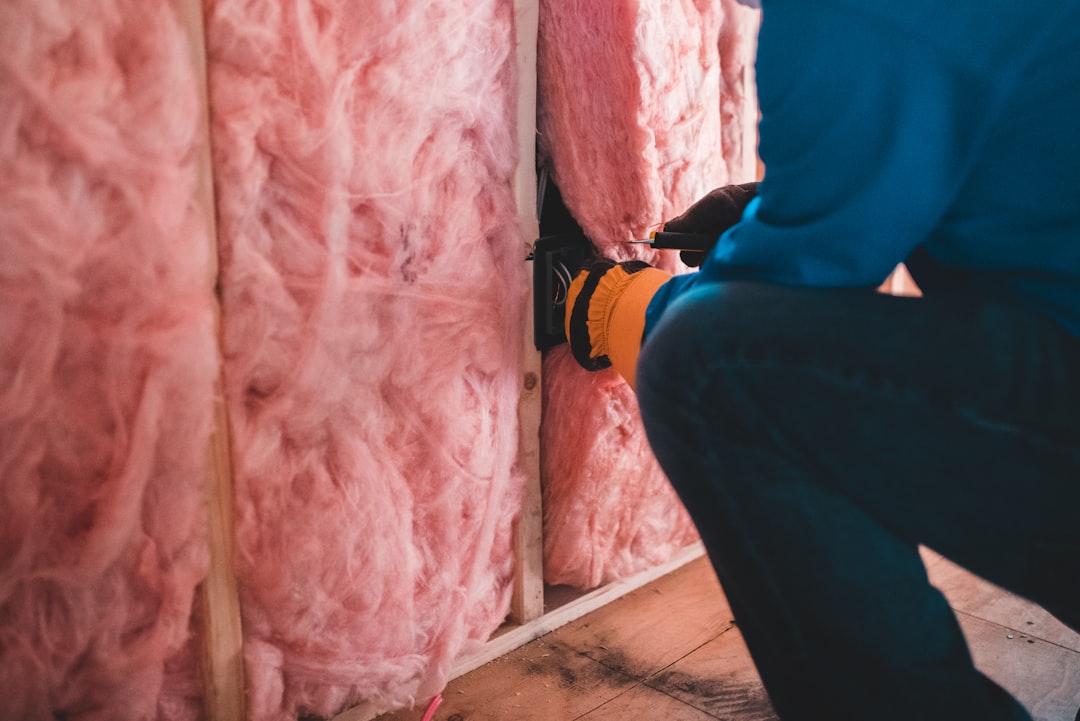 Photo from Unsplash
Photo from Unsplash
Originally Posted On: https://forefrontgroup.ca/how-spray-foam-insulation-helps-with-moisture-management-and-mold-prevention/
How Spray Foam Insulation Helps With Moisture Management and Mold Prevention
Overview
In this blog post, Forefront Insulation & Drywall Ltd’s insulation experts will explore how spray foam insulation can help manage moisture and prevent mold growth in your home or commercial space. We’ll discuss the unique benefits of spray foam insulation, compare it to other insulation methods, and discuss why it’s a powerful solution for maintaining a healthy, energy-efficient environment.
Highlights
- Understanding moisture and mold issues
- Explaining what spray foam insulation is
- Comparing spray foam to other insulation types
- Spray foam’s role in moisture control
- How spray foam prevents mold growth
- Whether the cost of spray foam is worth it
- Whether spray foam insulation is right for you
Introduction
Moisture and mold problems can be headaches for homeowners and property managers. Left unchecked, moisture and mold can lead to structural damage, poor indoor air quality, and increased health risks. Finding an effective way to combat these issues is critical for your property’s long-term durability and safety.
Spray foam insulation has emerged as a leading solution in moisture management and mold prevention. Unlike traditional insulation materials, spray foam provides a seamless barrier that protects your home from water intrusion, regulates indoor humidity, and eliminates conditions that promote mold growth.
Forefront Insulation & Drywall Ltd will go over what you need to know about the benefits of spray foam insulation in managing moisture and preventing mold.
How Does Moisture and Mold Impact Your Home?
Moisture can infiltrate your home through roof leaks and cracks in walls or foundations. Once moisture enters, it creates a breeding ground for mold. Mold spores can spread everywhere and quickly grow into colonies when exposed to the right conditions. These conditions include high humidity levels, a food source—such as drywall or wood, and a lack of ventilation.
Mold growth can go undetected for quite some time, making it challenging to address the issue before it becomes a significant problem. Unfortunately, the damage has already been done by the time you see visible signs of mold, such as discoloration or musty odours.
What Is Spray Foam Insulation?
Spray foam insulation is a versatile material applied as a liquid that expands into a thick, foam-like substance. It adheres to surfaces, fills gaps, and hardens into a durable barrier.
There are two main types of spray foam.
Open-Cell Foam
Open-cell foam is a type of spray foam insulation that’s light and flexible. It’s made up of tiny cells that aren’t completely closed, which allows air to fill the gaps inside the foam. This makes it a good option for insulating spaces where soundproofing is needed, as it can absorb noise effectively.
Open-cell foam also expands more than closed-cell foam, making it great for reaching small cracks and hard-to-reach areas. It’s often a more affordable choice and ideal for use in interior walls, ceilings, and attics.
Closed-Cell Foam
Closed-cell foam is a denser type of spray foam insulation that has cells that are completely closed, making it more rigid and able to withstand pressure. This makes it the better option for insulating exterior walls, as it can provide structural support and act as an insulator.
Closed-cell foam also has a higher R-value than open-cell foam, meaning it provides better insulation against heat transfer.
Spray Foam vs. Other Insulation Types
Other types of insulation, such as fiberglass and cellulose, can also help with moisture management, but they have their limitations.
Fiberglass
Fiberglass insulation is made of tiny glass fibers that trap air and slow heat transfer. While it can help reduce moisture in your home, fiberglass itself can hold onto water, making it a potential breeding ground for mold. Fiberglass batts or blankets are also less effective at sealing air leaks than spray foam, allowing moisture to seep through and cause problems.
Cellulose
Cellulose insulation is made of recycled paper treated with chemicals to give it fire-resistant properties. While it can also help manage moisture, cellulose can absorb and retain water, providing a hospitable environment for mold growth. It’s also susceptible to settling over time, leaving gaps for air and moisture to enter your home.
Why Spray Foam Outperforms Other Insulation Types
Spray foam insulation provides superior moisture management compared to other types of insulation. Its ability to seal air leaks and resist water absorption makes it ideal for preventing mold in your home. Spray foam also has a higher R-value compared to fiberglass and cellulose, meaning it’s more effective at keeping your home insulated and energy-efficient overall.
What Is Spray Foam’s Role in Moisture Control?
Spray foam insulation is uniquely effective at managing moisture in several ways, including the following.
Sealing Gaps and Cracks
As mentioned, traditional insulation materials like fiberglass or cellulose often leave gaps where air and moisture can pass through. Spray foam expands on application, sealing every nook and cranny, creating a continuous barrier that blocks water and air infiltration. This is especially important in areas like basements and crawl spaces, where moisture can seep through small cracks.
Acting as a Vapour Barrier
Closed-cell spray foam also acts as a vapour barrier. This means it restricts the movement of moisture through walls, floors, and ceilings, delaying or preventing moisture from entering the home.
Preventing Condensation
Condensation occurs when warm, moist air hits a cold surface. It can happen in homes, attics, and basements where there’s often not enough insulation. Spray foam insulation helps prevent condensation by creating an airtight seal that keeps temperatures consistent throughout the home.
How Does Expanding Foam Prevent Mold Growth?
Mold thrives in damp environments, making it a common issue in homes with poor insulation and moisture control.
Spray foam insulation is an effective tool for preventing mold growth because of the following.
Moisture Management
As mentioned earlier, spray foam insulation helps manage moisture by creating a solid barrier that keeps water and dampness out of your home. It fills in cracks, gaps, and hard-to-reach areas, stopping moisture from sneaking in and causing problems. Keeping these spaces dry reduces the chances of mold growing and spreading.
Humidity Regulation
High indoor humidity creates an ideal environment for mold. Spray foam insulation helps maintain a balanced humidity level by reducing air leaks and minimizing condensation. This creates an inhospitable environment for mold growth.
The Use of Non-Organic Material
Unlike cellulose or wood-based insulation, spray foam doesn’t serve as a food source for mold. It’s made of inert polymers and contains no organic materials that can support mold growth. This makes it an effective long-term solution for preventing mold in your home.
Is the Cost of Spray Foam Insulation Installation Worth It?
Spray foam insulation has a higher upfront cost than traditional insulation materials, but its long-term benefits outweigh the initial investment. Its installation costs are typically higher due to its specialized application process and materials.
Despite the higher upfront costs, spray foam insulation can save you money in the long run through:
- Greater energy efficiency: Spray foam provides superior thermal resistance, reducing heating and cooling costs by up to 30%.
- Reduced repairs: By preventing moisture and mold damage, spray foam minimizes the need for costly repairs to walls, ceilings, and floors.
- Increased property value: Homes with spray foam insulation often have higher resale values due to their energy efficiency and durability.
Is Spray Foam Insulation Installation Right for You?
Whether spray foam insulation is the right choice for your home depends on various factors, such as your budget and personal preferences.
Consider these points when making a decision.
Budget
If you’re on a tight budget, spray foam insulation might feel expensive at first, but it’s worth looking at the bigger picture. While the upfront costs are higher compared to other types of insulation like fiberglass, the long-term savings in energy bills can make up for it over time.
Plus, the added benefits of preventing moisture, reducing the chance of mold, and making your home more energy-efficient could save you money on repairs and increase the overall value of your house.
Personal Preferences
Some people might prioritize energy efficiency, while others might be more concerned about environmental impact.
Spray foam insulation is highly effective at reducing energy consumption, which can lower your carbon footprint. However, it’s essential to consider the type of spray foam used. Opting for eco-friendly or low-VOC spray foam options can help align with your sustainability goals.
It’s worth mentioning that spray foam insulation contains chemicals that may pose health risks during installation—which is why it’s best left to a professional, but once properly cured, it does not release toxic fumes or particles.
If you have any questions about the materials being used in your home, discuss them with a professional insulation installer to find the best option for you.
Discuss Your Options With an Insulation Contractor Today
Spray foam insulation is a game-changer for moisture management and mold prevention. Its ability to seal gaps, act as a vapour barrier, and resist mold makes it an invaluable investment for any property owner. While the initial cost may be higher, the long-term benefits of improved energy efficiency, reduced repairs, and enhanced indoor air quality make it a smart choice.
If you’re ready to protect your property from moisture and mold, Forefront Insulation & Drywall Ltd can help you explore your spray foam insulation options. Our knowledgeable team can provide you with information, recommendations, and a free quote for installation. Let us help you create a healthier, more energy-efficient environment with the power of spray foam insulation!
Contact us today at (250) 317-8870 to schedule a consultation and take the first step towards a more comfortable, secure home.






